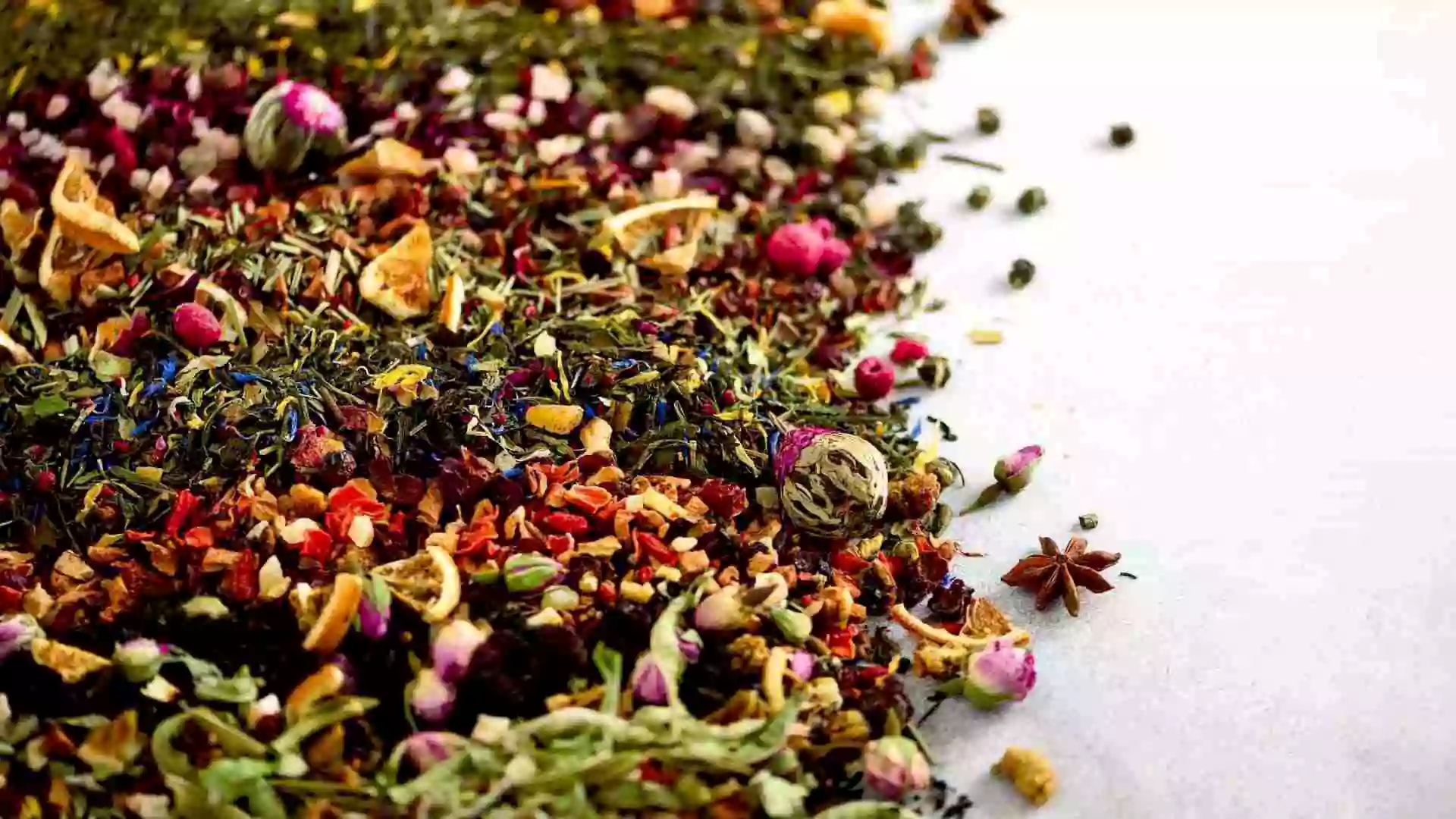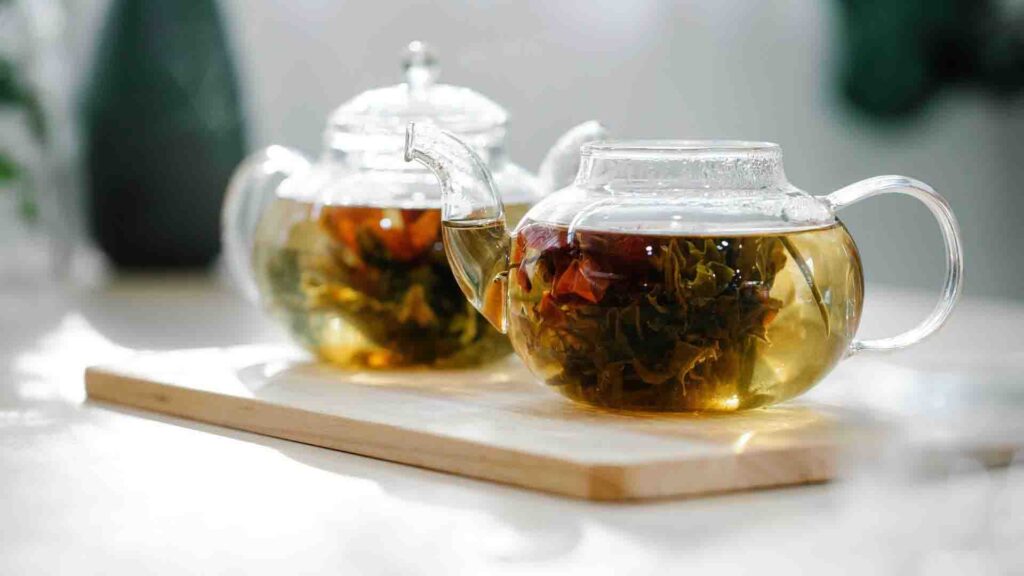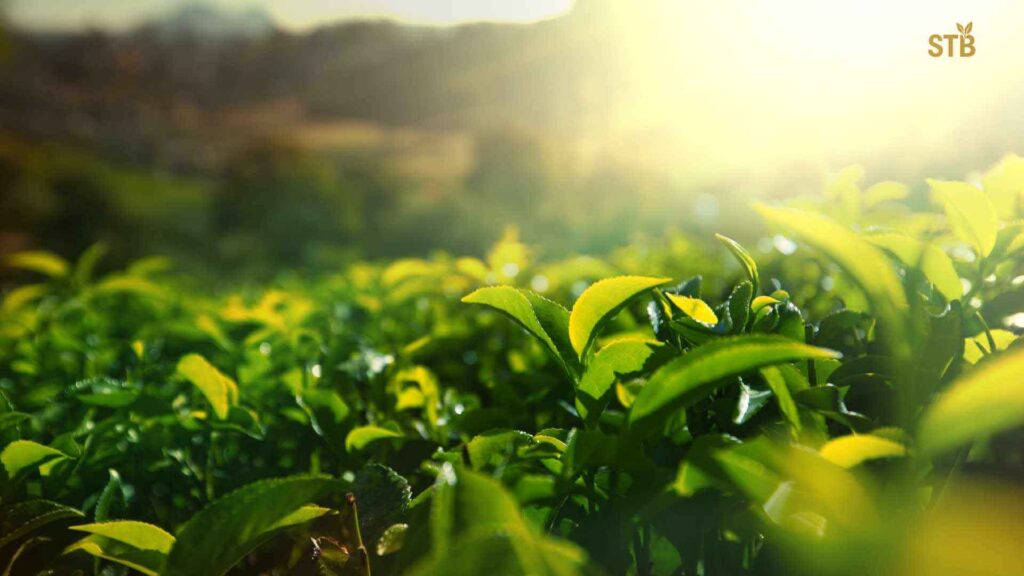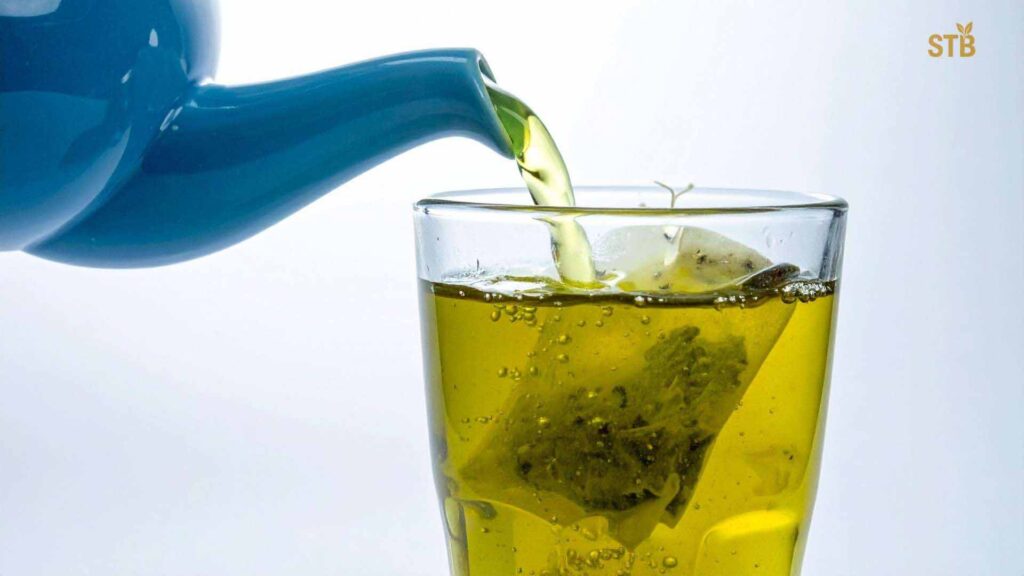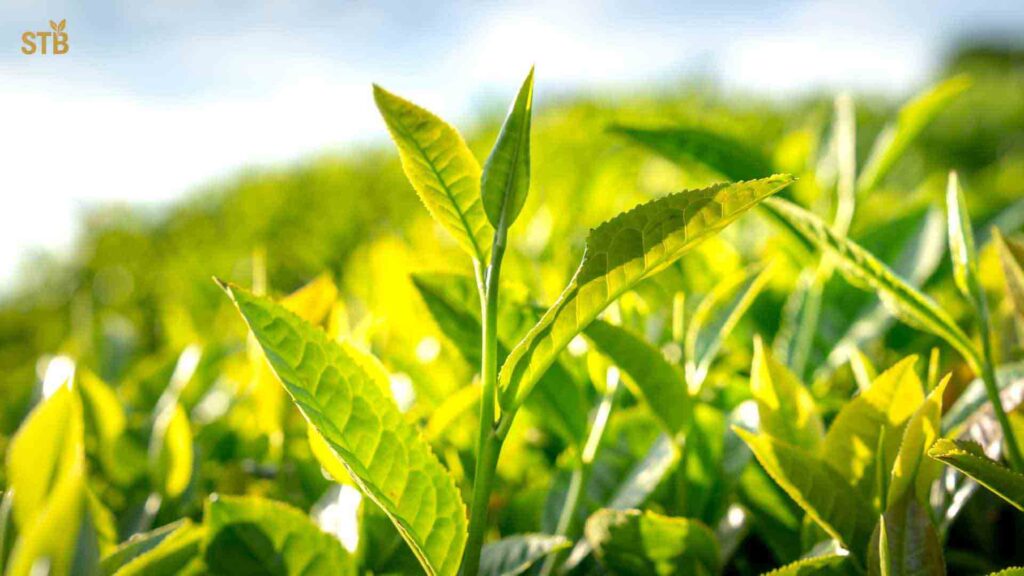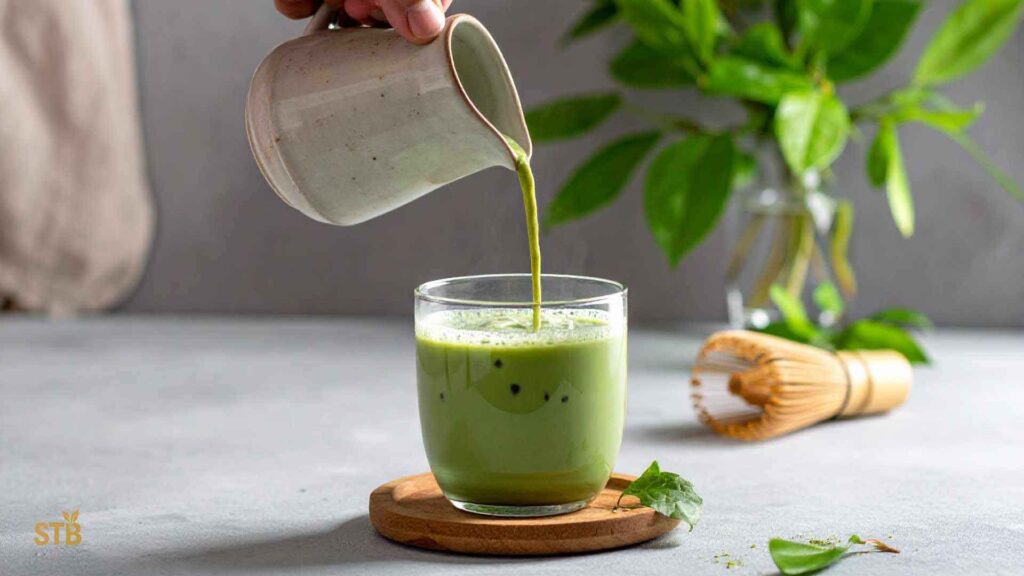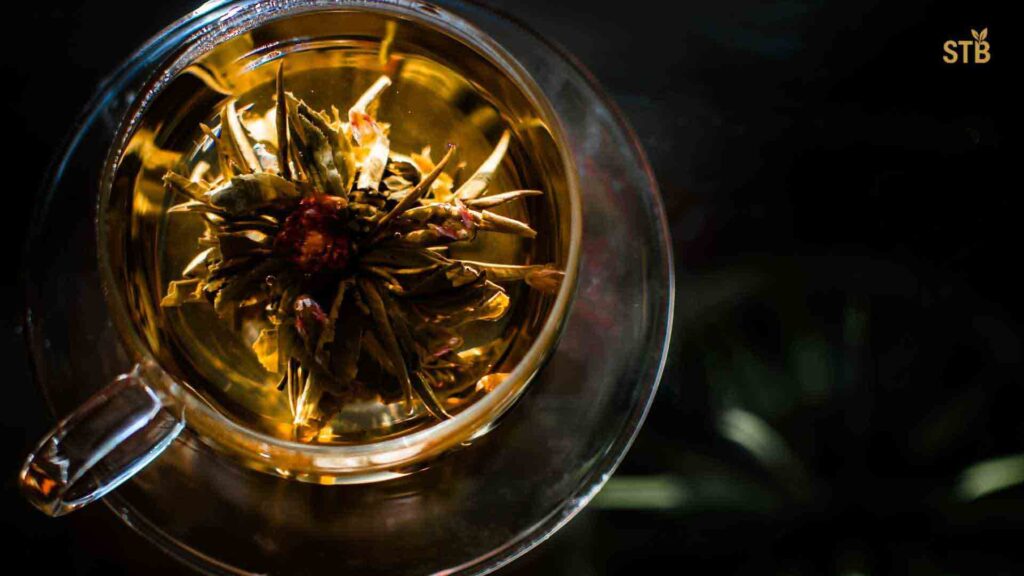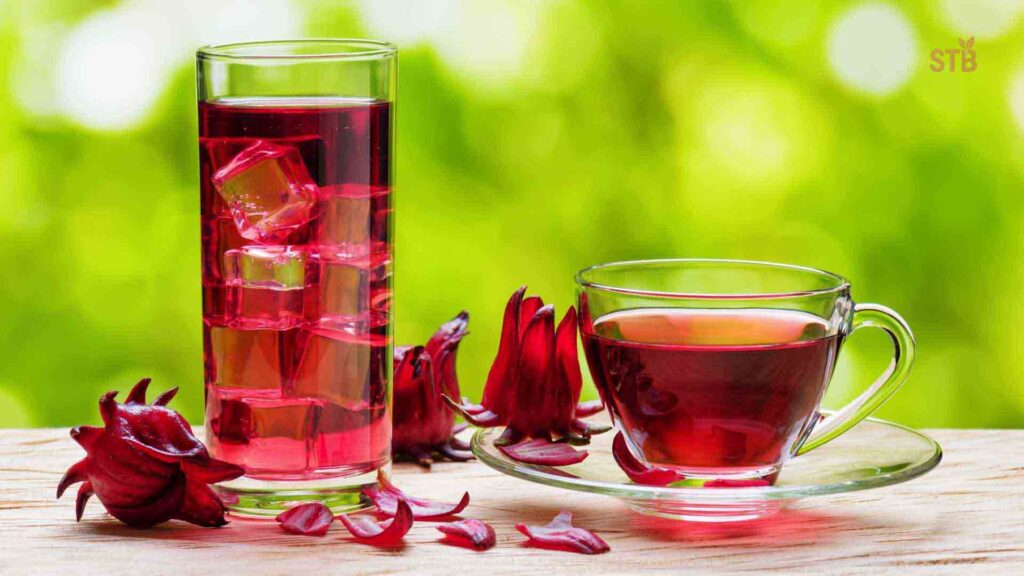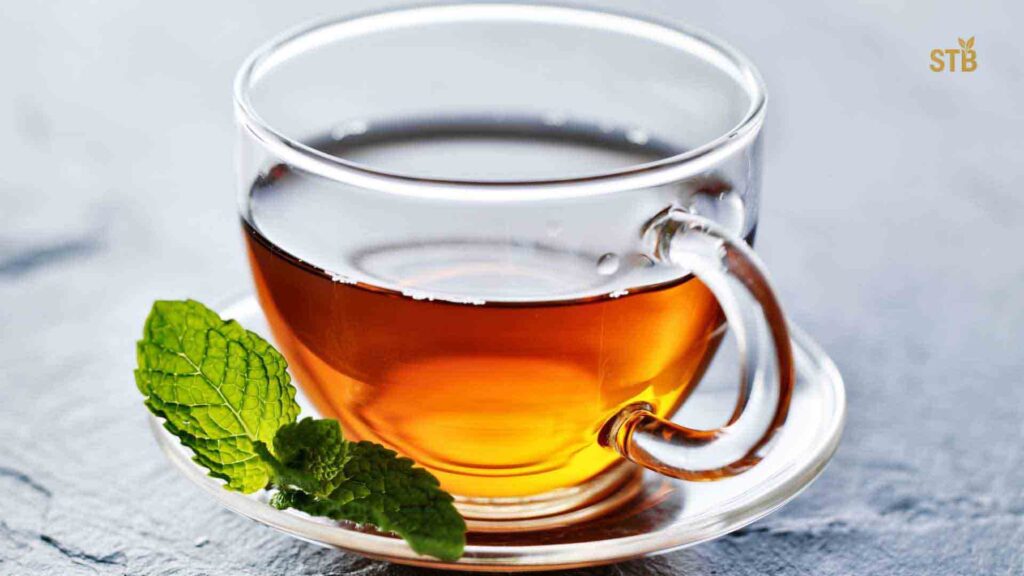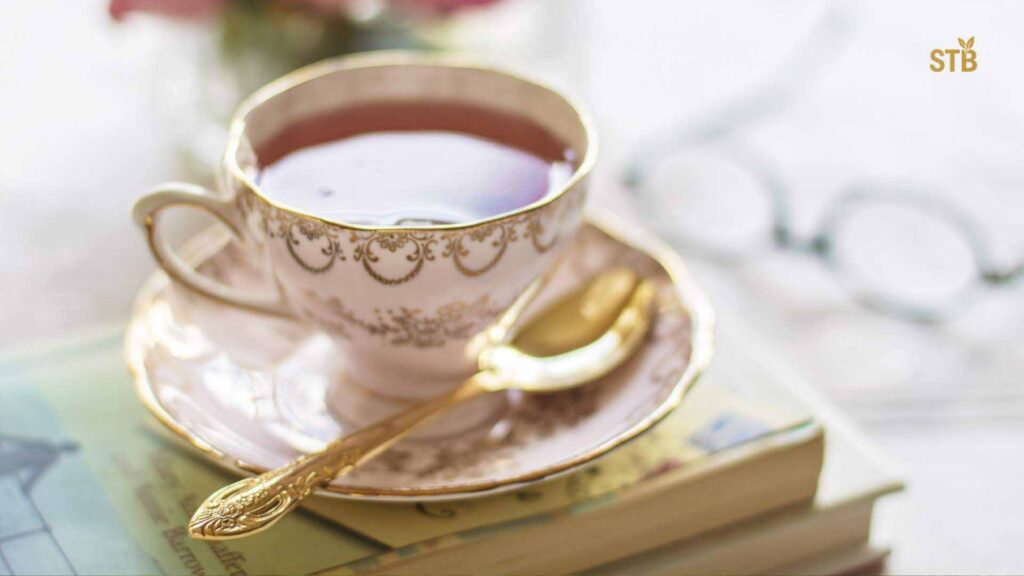A lush tea plantation in Bangladesh at dawn illustrates how morning light and fresh tea leaves set the stage for a healthy cup. Tea is more than a refreshing drink – it offers diverse health benefits thanks to antioxidants and soothing compounds. In Bangladesh (a top tea producer) and around the world, many people start the day with a hot cup of cha and unwind with another in the evening.
By timing your tea breaks right, you can maximize those benefits. In this guide, we explore the best times to drink tea – morning for an energy boost, afternoon for steady focus, and evening for calm – along with the reasons behind it.
Morning Boost: Energize Your Day
In the morning, your body and brain need a gentle jolt of energy and antioxidants. Caffeinated teas like green tea and black tea contain moderate caffeine plus L-theanine, which together improve alertness and cognitive function without the jitters. For example, a Healthline nutritionist notes that green tea’s caffeine and L-theanine “work together to improve brain function and mood” – making it “a great way to start your day”.
Verywell Health also recommends tea first thing in the morning or mid-afternoon for an energy lift. Regular black tea drinkers, for instance, enjoy heart-healthy antioxidants (theaflavins) and about 47 mg of caffeine per cup, which can sharpen focus.
- Green Tea: Rich in antioxidants (EGCG) and ~25–35 mg caffeine. Morning green tea kick-starts metabolism and hydration. Sipping it with breakfast (or on an empty stomach if you can tolerate it) helps you absorb beneficial flavonoids.
- Black Tea: Contains higher caffeine (~47 mg) and powerful flavonoids. A black tea in the a.m. can improve blood circulation and alertness. Studies link regular black tea (2–3 cups daily) to lower LDL cholesterol and reduced heart disease risk.
- Oolong or Pu-erh: These teas have moderate caffeine. Oolong’s balanced oxidation level delivers sustained energy, while pu-erh (dark fermented tea) aids digestion – useful if you pair it with breakfast.
- Tip: Avoid drinking strong tea on an empty stomach if sensitive – caffeine can irritate the stomach lining. Instead, enjoy tea with breakfast or within an hour after eating.
Drinking tea with breakfast (or shortly after) not only boosts energy but also provides antioxidants that protect cells. For the “morning boost,” aim to enjoy your first cup about 30–60 minutes after waking. This maximizes caffeine’s helpful lift while giving your stomach time to settle with some food.
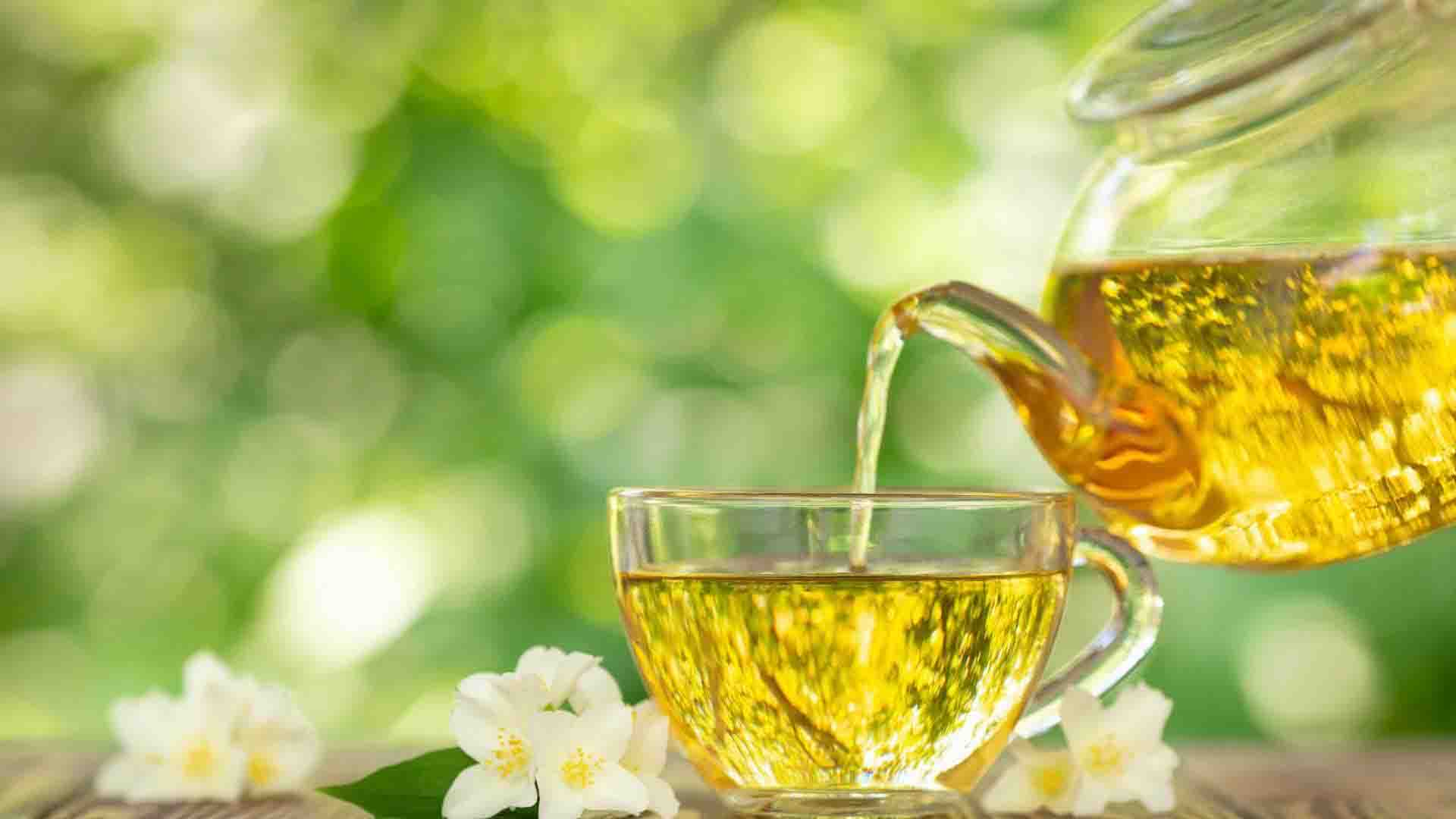
Afternoon Refresh: Steady Focus & Hydration
The early to mid-afternoon can bring an energy slump. This is a great time for another cup of tea to refresh mind and body. Midday tea helps maintain alertness and steady blood sugar. Again, green or black tea works well (with caution on caffeine timing). Verywell Health explains that tea’s caffeine is released gradually over hours, so a late-afternoon boost can still keep you productive. However, experts advise cutting off caffeine by mid-afternoon (around 2–4 PM) to avoid sleep disruption later.
- Matcha or Gyokuro: These concentrated green teas give an intense but calm lift. Drinking matcha around lunchtime can sustain your focus without a crash.
- Oolong Tea: Its moderate caffeine and complex flavonoids aid concentration and metabolism. An oolong tea mid-afternoon is less likely than coffee to cause jitters but still keeps you alert.
- Peppermint or Ginger Tea: If you prefer caffeine-free or after lunch, these herbal options soothe digestion and perk up the senses. Peppermint aids digestion and freshens the palate, while ginger tea is a natural remedy for sluggish digestion and has anti-inflammatory effects. Sipping them after a meal can help you feel refreshed.
- Hydration: In hot climates or after exercise, iced tea (e.g. unsweetened green or hibiscus) can rehydrate and deliver nutrients. Just keep sugar low to retain health benefits.
Afternoon tea isn’t just about energy; it’s also a chance to hydrate. Whether hot or iced, tea contributes to daily fluid intake. Pairing your afternoon cup with a light snack (fruit, yogurt, nuts) provides steady glucose, and the tea’s catechins help moderate blood sugar spikes.
By mid-afternoon, if you’ve already had your caffeine fix, switch to a herbal blend. For instance, an afternoon cup of rooibos (caffeine-free red tea) is rich in antioxidants but won’t keep you up later.
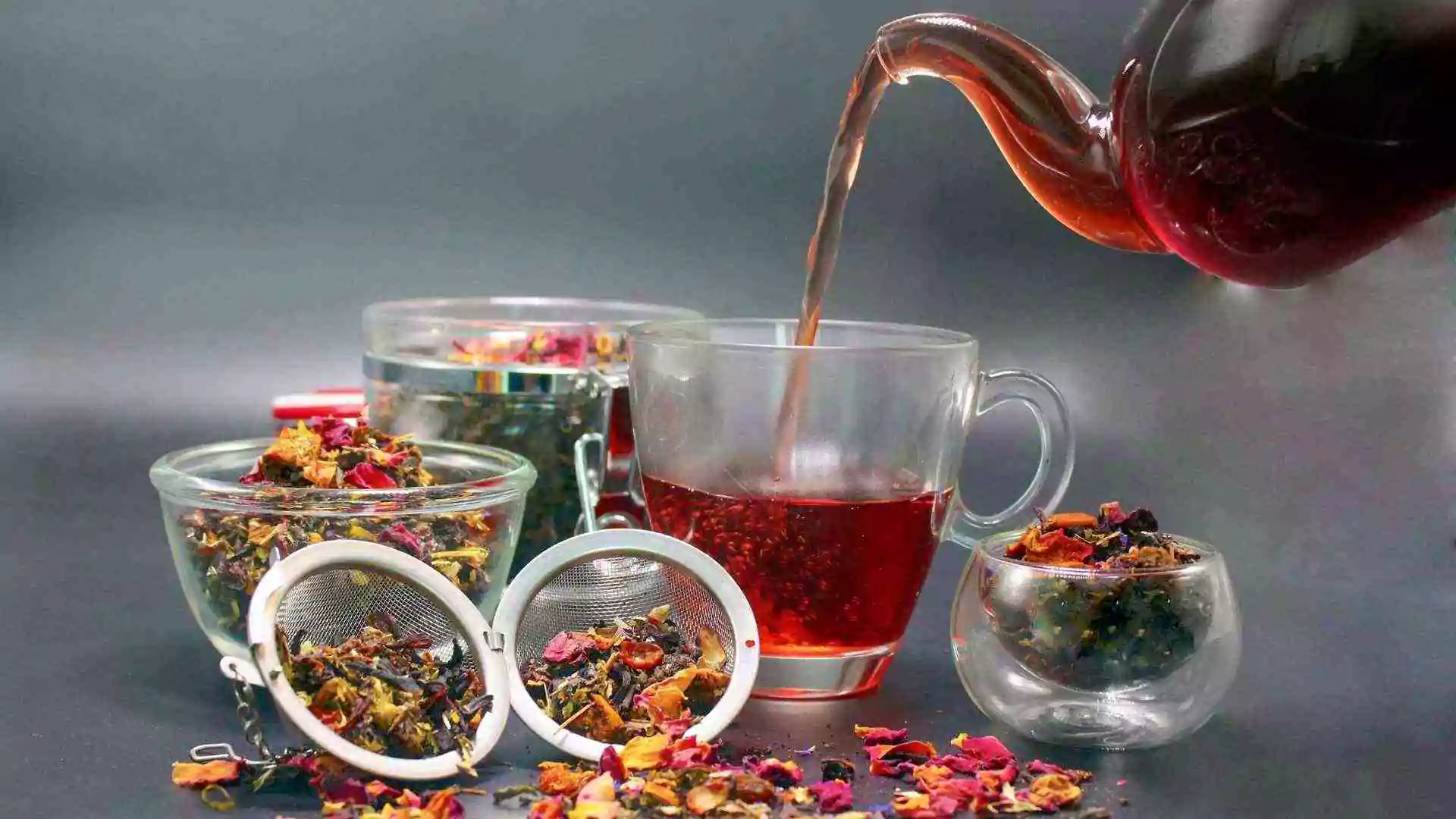
Evening Calm: Relax & Wind Down
After sunset, the goal shifts to relaxation. The evening calm is best supported by caffeine-free herbal teas that promote tranquility and sleep. Avoid high-caffeine teas (green, black, oolong) too close to bedtime, as studies show even ~30 mg of tea caffeine can disrupt sleep if consumed within 6 hours of bedtime. Instead, choose soothing tisanes:
- Chamomile Tea: The classic nighttime brew. Chamomile contains apigenin and other flavonoids that reduce anxiety and improve sleep quality. Research links chamomile consumption with calmer nerves and better rest.
- Lavender or Chamomile Blends: Many bedtime blends combine chamomile with lavender or lemon balm for enhanced calming effect. Chamomile’s gentle “sleep-promoting” nature is well documented.
- Peppermint or Rooibos: These continue to be good evening options. Rooibos is naturally caffeine-free and high in polyphenols that support heart health. Peppermint tea eases digestion and can relax the body after dinner.
- Decaffeinated Green/White Tea: If you crave true tea flavor, low-caffeine white tea (baby tea leaf) or decaf varieties can offer antioxidants with minimal stimulation. But be sure it’s truly decaf or consumed hours before bed.
Many cultures enjoy a “nightcap” of tea. For example, in Bangladesh, households often share masala chai (spiced black tea) in the morning and sip chilled hibiscus or soothing herbs in the evening. The key is that evening tea should be decaffeinated. For deep relaxation, try adding a slice of lemon (vitamin C boosts antioxidant absorption) and a touch of honey.
Timing Tips & Considerations
- Between Meals: To maximize nutrients, drink tea between meals. Tea’s tannins can inhibit absorption of iron and other minerals if drunk with food. Aim to wait 1–2 hours after a meal for your next cup.
- Caffeine Cutoff: Most people should stop caffeinated tea by mid-afternoon. The gradual caffeine release in tea means its effects can last up to 12 hours. If you’re caffeine-sensitive, avoid black/green tea after 2–3 PM.
- Hydration: Herbal and caffeine-free teas help you meet daily fluid needs. Ginger or chamomile teas not only relax but also aid digestion of that evening meal.
- Quantity: Research suggests 2–4 cups of tea per day balances benefits with caffeine intake. Drinking tea daily has been associated with lower risk of heart disease and diabetes. Listen to your body’s signals for hydration and alertness.
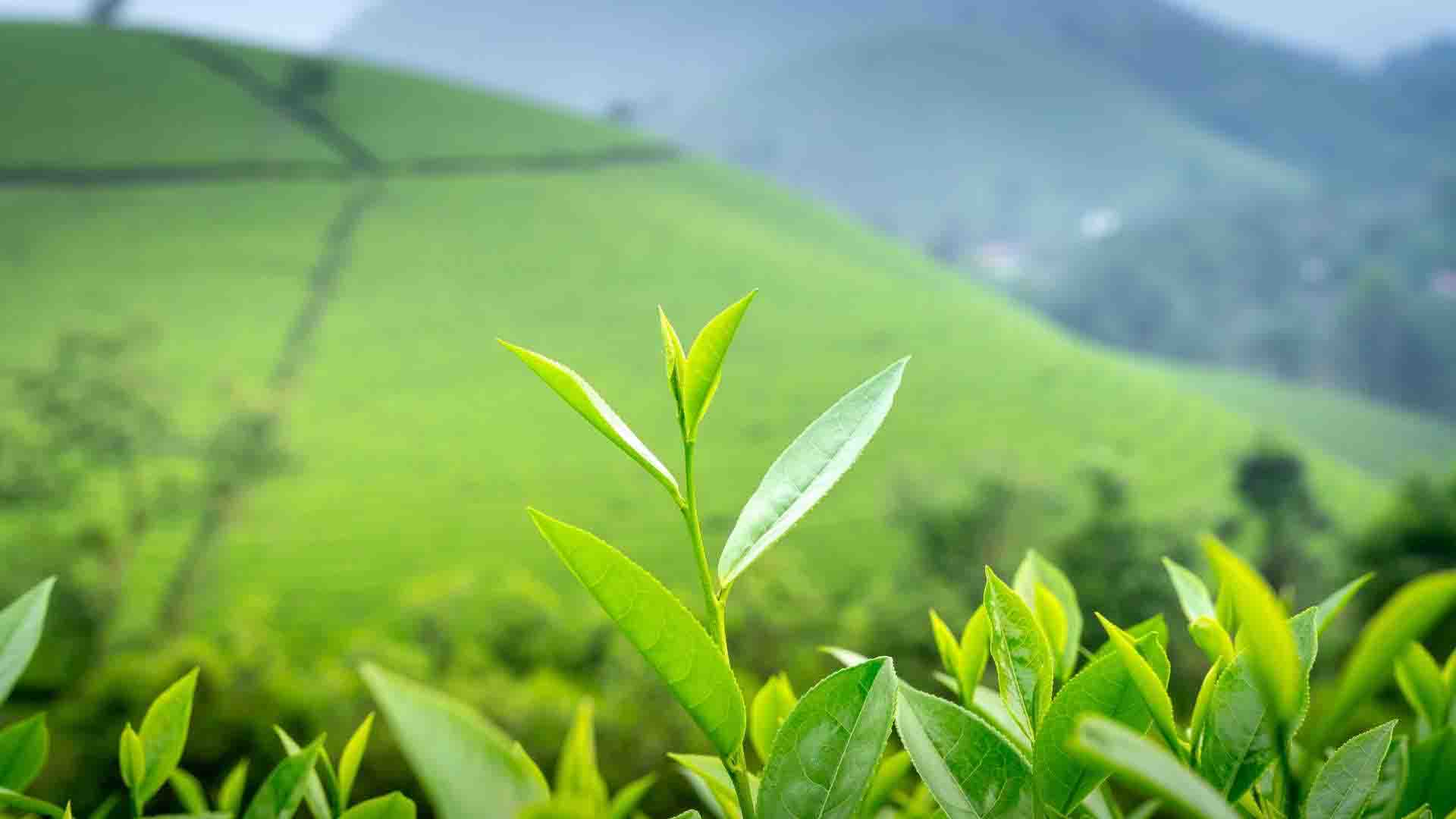
Drinking tea at the right times can amplify its health benefits: energy and antioxidant kick-start in the morning, a steady refresh in the afternoon, and calm relaxation in the evening. Each tea variety has its own perks, so try combining different types. For example, many enjoy spiced black chai in the morning and switch to soothing herbal tea before bed. Always avoid brewing with excessive sugar or milk, which can dilute healthful effects.
To make the most of your tea routine, focus on quality and timing: use loose-leaf tea if possible, brew it properly, and sip it mindfully. Ready to explore premium teas? Check out STB Leaf’s collection of high-quality Bangladeshi teas in our Shop and subscribe for more wellness tips. Sweeten your day with healthful habits and a perfect cup of tea!
Discover your ideal tea ritual today! Visit STB Leaf’s online shop to browse our range of green, black, and herbal teas, and sign up for our newsletter to get brewing tips and exclusive deals.
FAQs (Frequently Asked Questions)
Q: What is the best time of day to drink tea?
A: It depends on your goals and the type of tea. Generally, drink caffeinated teas (green, black, oolong) in the morning or early afternoon to boost alertness, and herbal or caffeine-free teas in the evening for relaxation. Experts suggest stopping caffeine by mid-afternoon to avoid sleep disruption.
Q: Why drink tea in the morning?
A: Morning tea (especially green or black) provides caffeine and antioxidants that enhance focus, metabolism, and mood. Green tea’s L-theanine promotes a calm alertness, making it ideal for starting the day.
Q: Which tea is best to drink in the afternoon?
A: A mild caffeine tea like green or oolong in the afternoon helps sustain energy without jitters. You can also enjoy peppermint or ginger herbal tea after lunch to aid digestion and refresh the mind.
Q: Can I drink tea before bed?
A: Avoid caffeinated tea before bedtime, as it may interfere with sleep. Instead, choose caffeine-free herbal teas like chamomile or rooibos that promote relaxation and better sleep.
Q: Is it okay to drink tea on an empty stomach?
A: Some people enjoy green tea in the morning on an empty stomach to maximize antioxidant absorption. However, caffeine can irritate the stomach, so if you’re sensitive, have tea with or after breakfast.
Q: How many cups of tea should I drink each day?
A: Studies often suggest 2–4 cups per day for health benefits. This provides antioxidants and a moderate caffeine dose. Drinking tea daily is linked to improved heart and digestive health. Don’t exceed that if you’re sensitive to caffeine or tannins.
Q: Does tea interfere with iron absorption?
A: Yes. Tea contains tannins that can inhibit iron absorption if consumed with meals. To maximize nutrition, drink tea between meals (about 1–2 hours before or after eating) rather than with food.
Q: Can tea help with weight management, and when should I drink it for that?
A: Some teas (green, oolong, pu-erh) slightly boost metabolism and fat breakdown when consumed regularly. Sipping green tea in the morning or before exercise may enhance fat burning. Also, replacing sugary drinks with plain tea can reduce calorie intake overall.
Q: Are herbal teas healthy to drink every day?
A: Most herbal teas (chamomile, peppermint, rooibos, etc.) are safe and healthy when consumed daily. They’re naturally caffeine-free and have various benefits (e.g., chamomile for relaxation, peppermint for digestion). Just check that any herbs you use don’t conflict with medications or allergies.
Q: What tea should I drink if I’m sensitive to caffeine?
A: If caffeine is an issue, stick to decaffeinated teas or caffeine-free herbs. Rooibos, chamomile, peppermint, ginger, and hibiscus teas have little or no caffeine but still offer antioxidants and flavor. These can be enjoyed throughout the day or evening without keeping you awake.
Q: How do I brew tea to get the most health benefits?
A: Use proper brewing: fresh, high-quality loose-leaf tea; correct temperature; and steeping time. For example, brew green tea at ~80–85°C (not boiling) for 2–3 minutes to preserve catechins. Adding a bit of vitamin C (lemon) can increase antioxidant absorption. Check out STB Leaf’s brewing guide for more tips and a perfect cup every time.
